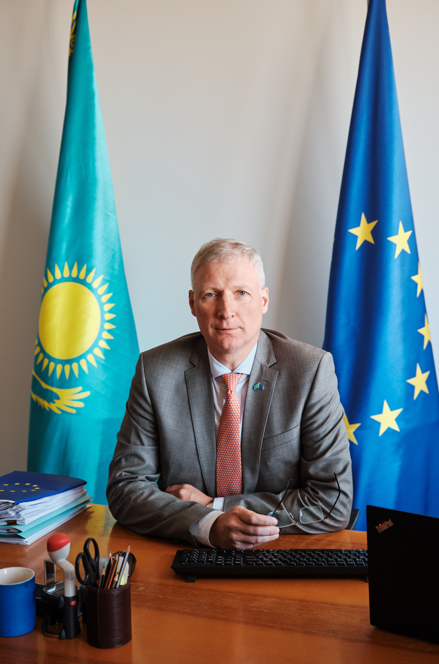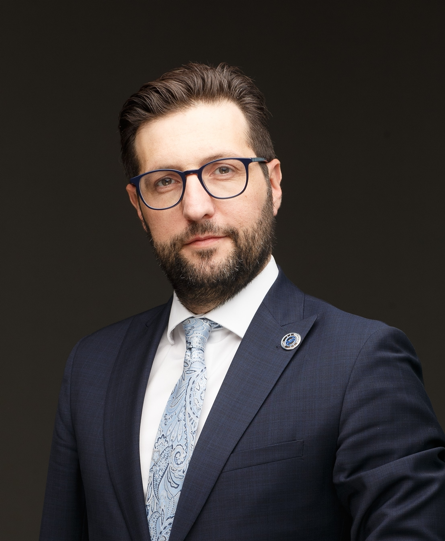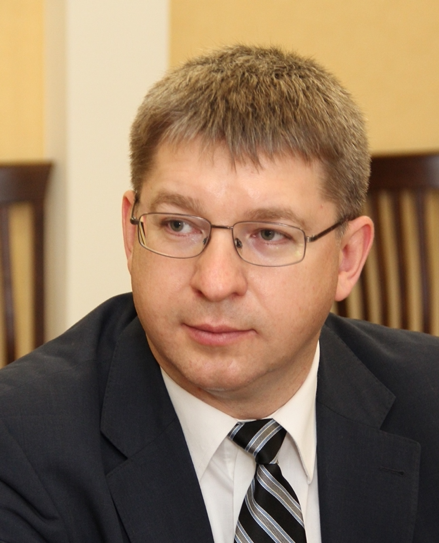Currently, leaders of nations are convening at the 78th session of the UN General Assembly in New York, discussing a spectrum of issues including the global climate agenda. Kazakhstan is proactively participating in these crucial global discussions, putting forth strategies designed to reduce greenhouse gas emissions.

Photo credit: Shutterstock.
The challenge of methane emissions is emerging as a global concern, with 150 countries actively participating in the Global Methane Pledge – a new initiative introduced at the 26th UN Climate Change Conference of the Parties (COP26) in Glasgow in 2021. While motivations may vary, the participating nations are united in their goals.
What does the future hold for Kazakhstan in terms of fulfilling its commitments under the Paris Agreement, and is joining the Global Methane Pledge a possibility? Insights on these questions have been offered by both international and national experts during the second Climate Dialogue, which took place in September in Astana.
For the Future of Kazakhstan
Kestutis Jankauskas, EU Ambassador to Kazakhstan

Kestutis Jankauskas.
The Global Methane Pledge is a collective commitment to our planet and future generations. Methane is a potent greenhouse gas that accelerates climate change for the worse. As we approach the Sustainable Development Goals Summit, it’s crucial to keep in mind that to maintain a livable climate on Earth, we need to reduce greenhouse gas emissions by 43% by 2030. We all need to contribute to achieving this objective.
The European Union (EU) stands at the forefront of this commitment, but we need partners. Our efforts are not just for the greater good of the planet, but also for our own well-being, here and now: we need cleaner air, potable water, and a healthier environment.
Central Asia, located at the heart of the vast Eurasian continent, experiences the effects of global warming twice as intensely as anywhere else on Earth. While some argue that mitigating methane emissions comes at a high cost, the devastating consequences of climate change will prove even more expensive. Water scarcity is already being felt, and without taking action, the availability of water for drinking, our cities, and irrigation will continue to diminish.
For decades, the EU has been – and remains – Kazakhstan’s primary trading partner. This market has a population of 450 million, is stable, and offers lucrative opportunities. As Kazakhstan embarks on a new economic policy, it is worthwhile to examine the interests of its largest trading partner and anticipate the requirements for maintaining market accessibility, while ensuring alignment with the market’s regulations. The compatibility of emission trading systems, the Carbon Border Adjustment Mechanism (CBAM), and the EU’s shift towards the Green Deal, characterized by a substantial increase in renewable energy sources and green hydrogen, is a trend to follow. By adhering to these green EU trends, Kazakh products will not only enhance their competitiveness in the European market, but also on the global stage.
Kazakhstan has already undertaken commitments within the framework of its Nationally Determined Contributions (NDCs). So, why not include methane in them? Transitioning economies make faster progress when they embrace the latest technologies and invest in the future rather than in the past.
All around the world, competition is intensifying for crucial resources, investments, and market access. Reputation holds immense value in this arena. So, why not supplement Kazakhstan’s already positive reputation with an additional green label through a commitment to reduce methane emissions? It is a risk-free decision – a winning ticket that will not only bolster the country’s international image but also grant access to a range of EU programs and support mechanisms, both technological and financial ones.
The EU stands ready to support Kazakhstan and other signatory countries of the Pledge in the implementation of its commitments. However, it is equally important to seek and fully utilize the support of international financial institutions, notably the EBRD, and other key players like the Climate and Clean Air Coalition, the Global Methane Initiative, and the United Nations Environment Programme (UNEP).
This is a perfect time to make informed decisions in anticipation of COP28 in Dubai.
New Investments for Kazakhstan
Huseyin Ozhan, Director, Head of Kazakhstan at EBRD

Huseyin Ozhan.
Kazakhstan is the first state in Central Asia to pledge reaching carbon neutrality in its power sector by 2060 and has adopted the relevant national strategy. In his recent address to the nation, President Kassym-Jomart Tokayev stressed the importance of delivering on this commitment for the prosperity of the country and its people.
Methane is a potent but short-lived climate pollutant that accounts for about half of the net rise in the global average temperature since the pre-industrial era. Rapidly reducing methane emissions from energy, agriculture, and waste is regarded as the single most effective strategy to achieve the goal of limiting warming to 1.5 C.
It is clear that Kazakhstan should utilize its vast new renewable energy resources – wind and solar power – to accelerate the shift away from fossil fuels such as coal, oil, and gas.
However, it is important to recognize that both oil and gas will continue to play a role in Kazakhstan’s economy in the coming decade. Therefore, Kazakhstan needs to be prepared for the EU Carbon Border Adjustment Mechanism and forthcoming Methane legislation, which aim to reduce imports of carbon and methane-intensive commodities like oil and gas.
Technologies for mitigating methane emissions in the oil and gas sectors are already available and proven to be commercially viable, with payback periods ranging from six months for leak detection and repairs to five-seven years for upgrades of piping and compression equipment
By joining the 150 countries that are signatories of the Global Methane Pledge, Kazakhstan will gain access to technologies and finance for methane emission reduction. Hopefully, Kazakhstan will join the pledge during the forthcoming COP-28 in Dubai and demonstrate its commitment to its net-zero target.
The Potential for a Strategy
Dr. Professor Bakhyt Yessekina, a member of the Green Council under the President of Kazakhstan, and the CEO and Director of the Green Academy think-tank

Bakhyt Yessekina.
In his September state-of-the-nation address, President of Kazakhstan Kassym-Jomart Tokayev reiterated the importance of transitioning to a green economy and implementing the strategy for achieving carbon neutrality by 2060 with a primary focus on mitigating greenhouse gas emissions.
It’s well-acknowledged that Kazakhstan, as a signatory to the Paris Agreement in 2015, has pledged to curtail greenhouse gas emissions by 15-25% by 2030. This commitment addresses six gasses, as advised by the Intergovernmental Climate Expert Commission (IGCEC) under the United Nations, inclusive of carbon dioxide and methane.
In Kazakhstan, the Ministry of Ecology and Natural Resources has been conducting extensive, long-term work on inventorying and monitoring greenhouse gas emissions within the Zhasyl Damu company. Even as many joint ventures in the oil and gas sector, such as Karachaganak Petroleum Operating BV (KPO) and the North Caspian Project (NSOC), are developing their methodologies for quantifying methane emissions and are diligently monitoring greenhouse gasses, methane—responsible for 30% of current global warming due to human activities, as estimated by the International Energy Agency—still remains unincorporated in the National Allocation Plan for greenhouse gas emissions for 2022-2025.
In light of this, participants at the second Climate Dialogue, convened on Sept. 8, in Astana, have emphasized the crucial need for the government of Kazakhstan to join the Global Methane Pledge. This dialogue was organized by the Green Academy Research and Education Center in association with the Committee on Natural Resource Management of the Mazhilis (Parliament) and the Ministry of Ecology and Natural Resources, with support from international partners such as the EU, the European Bank for Reconstruction and Development (EBRD), and the United States Agency for International Development (USAID). It involved representatives from diplomatic missions, government bodies (including the Ministries of Energy, Trade and Integration, Industry and Construction, Agriculture, and the Mayor’s Office of Astana), KMG, Kazenergy, the International Green Technologies and Investments Center (IGTIPC), and various NGOs. Joining the Global Methane Pledge is deemed vital for the effective enactment of Kazakhstan’s Strategy for Carbon Neutrality and for fulfilling international climate commitments. This step would provide access to new technological opportunities for achieving the goals of the strategy and attracting green investments aimed at decarbonizing the national economy, thereby enhancing the sustainability and quality of life for Kazakh citizens.
How to reduce emissions?
Georgy Safonov, Cand. Sc. (Economics), Сoordinator of the SIPA Organization for Economic Co-operation and Development (OECD), IDDRI think tank, European Forest Institute Project in Central Asia, Deputy Head of the European Forest Institute (Finland)

Georgy Safonov.
According to official data, methane emissions in Kazakhstan reduced by more than 50% from 1990 to 2012. However, according to the National Greenhouse Gas Inventory of Kazakhstan, emissions have increased by almost 20% over the past decade. The main sources of emissions today are livestock (38%), the oil industry (24%), coal (13%), waste (10%), and natural gas (8%).
Can methane emissions in the country be lowered over the next decade? Projections suggest that accomplishing this task is extremely difficult. Nevertheless, examining the details provides a more nuanced perspective.
Oil and gas sector: All major international companies operating in the country have announced their methane emissions reduction goals. Shell, for instance, is committed to a 50% reduction from the 2016 levels by 2030; TotalEnergies targets an 80% reduction from 2020 to 2030, and Eni aims for a 30% reduction within the same timeframe. Chevron plans to decrease its specific methane emissions by 50% from 2016 levels by 2028. Technologies for reducing leaks, technological emissions, and methane utilization have long been developed and tested, so they can be applied to facilities operated by other industry companies. Achieving emissions reductions of 30% or more is quite a realistic objective.
Coal: The greatest volumes of methane emissions are linked to underground coal mining, while emissions during surface mining are relatively low. In Kazakhstan’s largest coal basin, the Karagandy Basin, a significant proportion of coal is extracted from underground mines. Numerous technologies for capturing and utilizing methane from these mines are readily available. Hence, the potential for reducing emissions is considerable. Additionally, in the long-term, the demand for Kazakh coal will probably decrease.
Waste: Large volumes of methane are generated at landfills and solid waste disposal sites. According to the Institute of Environmental and Energy Studies (EESI), 1 million tons of waste generates 12,200 cubic meters of methane daily. Many countries have implemented numerous projects for the recovery of landfill methane, its utilization, or combustion for energy purposes. During the period of the Kyoto Protocol’s effectiveness until 2012, hundreds of similar projects were initiated, with many receiving funding from the global carbon market. The technologies required for these initiatives are readily available and have proven to be highly efficient.
Kazakhstan has big potential for such projects, and there is a real possibility of significantly reducing methane emissions in this sector, even approaching zero, particularly by establishing conditions for carbon credits.
Livestock: Cattle farming, the predominant source of methane emissions in this sector, has witnessed significant growth in recent years within the country. A substantial portion of the meat production caters to both domestic consumption and export markets. To mitigate methane emissions, specific dietary additives that reduce internal fermentation, adjustments in feeding practices, and the substitution of cattle with other meat-producing animals and poultry are effective strategies.
The battle against methane emissions has evolved into a global mission. For instance, the United States and Canada (with significant emissions across all sectors), Brazil and Argentina (primarily in cattle farming), Nigeria and Norway (prominent figures in the oil industry), and Indonesia and Australia (leading coal producers) are signatories of the Global Methane Pledge.
The international financial institutions, such as the World Bank, EBRD, the Asian Development Bank, and others, actively endorse methane reduction initiatives worldwide, aligning with the broader agenda of decarbonizing economies. Instances of funding being withheld from projects that worsen methane emissions can be seen, such as the Inter-American Development Bank’s rejection of a $200 million loan to the major meat producer Marfrig (Brazil), even though it was intended to support the company’s green development plans.
Climate considerations are not only gaining prominence in international policy but also in business development paradigms. Kazakhstan’s national goal to achieve carbon neutrality by 2060 undeniably entails significant methane emissions reductions. Collaborative efforts with other countries and partners can provide the necessary impetus to address this challenge effectively.
Real business supports
Ruslan Mukangaliyev, Environment Controller of Karachaganak Petroleum Operating B.V. (KPO)

Ruslan Mukangaliyev.
Kazakhstan and its partners in the oil and gas industry recognize the importance of reducing methane emissions to mitigate the effects of climate change. In this regard, KPO has been also actively involved in the implementation of various initiatives and programs aimed at improving environmental safety and production reliability.
The Oil and Gas Methane Partnership 2.0 (OGMP 2.0) serves as the flagship oil and gas reporting and mitigation program under the United Nations Environment Programme (UNEP). It has set an ambitious objective to reduce methane’s adverse impact in the oil and gas sector. Currently, it stands as the sole comprehensive and measurement-based international reporting framework for this sector. This program holds particular importance because methane is one of the most potent greenhouse gasses, significantly contributing to global warming. The involvement of oil and gas sector members in this initiative will not only benefit the environment but also represent a meaningful stride towards a more sustainable and environmentally friendly future.
KPO is a supporter of this global initiative. Our efforts are focused on enhancing our environmental performance, including the reduction of methane emissions and the adoption of cleaner technologies.
Detecting and repairing methane leaks is one of KPO’s primary objectives. These actions not only enhance safety but also lead to a reduced environmental impact. Based on international experience and our own data, we have developed a methodology for calculating methane emissions, which has significantly enhanced estimated accuracy and enabled effective process management at our facilities.
We firmly believe that collaboration is the key to succeeding in this important task. Consequently, we are collaborating with local and international organizations, along with Kazakhstan’s governmental institutions, with the aim of effectively implementing the OGMP 2.0 program and other environmental initiatives.
In line with the principles of sustainable development and social responsibility, KPO is committed to furthering its efforts to curtail methane emissions. We wholeheartedly endorse the Ministry of Ecology and Natural Resources’ initiative for Kazakhstan to potentially join the Global Methane Pledge. In this regard, KPO is ready to provide comprehensive support for the execution of existing and forthcoming environmental programs in Kazakhstan.

